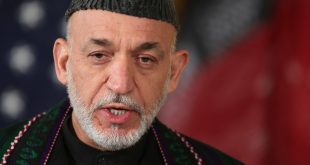KABUL – A Taliban environment official has urged for Afghanistan’s continued participation in global climate negotiations after the country’s first attendance at COP29 in Baku under Taliban leadership.
Matiul Haq Khalis, director general of Afghanistan’s National Environmental Protection Agency, emphasized the importance of Afghanistan’s presence at future conferences during a press briefing on Sunday. “Afghanistan must participate in such conferences to voice the nation’s issues and needs,” Khalis stated, describing their presence as a “big achievement.”
The Afghan delegation attended COP29 as “guests” of Azerbaijani hosts, not as a formal negotiating party. It marked the first time Afghanistan was represented since the Taliban’s return to power in August 2021, after being excluded from the last two COP summits in Egypt and the UAE.
Khalis revealed that Afghan officials met with representatives from 19 organizations and countries, including Russia, Qatar, Azerbaijan, and Bangladesh. He stressed Afghanistan’s vulnerability to climate change despite contributing minimal greenhouse gas emissions, citing worsening droughts, floods, and food insecurity.
Afghanistan, one of the world’s poorest nations, faces increasing challenges due to climate change. The United Nations has called for greater resilience-building measures and for Afghanistan’s inclusion in international climate efforts. Meanwhile, the Taliban government has argued that their political isolation should not prevent them from addressing critical environmental challenges.
Developed nations have committed $100 billion annually through 2025 to help developing countries combat climate impacts and transition away from fossil fuels. Afghanistan’s participation in these talks remains contentious due to the Taliban’s strict governance, including severe restrictions on women’s rights, which the UN has labeled “gender apartheid.”
As global warming accelerates, Afghanistan’s appeal for inclusion highlights the intersection of climate vulnerability and geopolitical complexity on the world stage.
4o
 Afghanistan Times
Afghanistan Times




